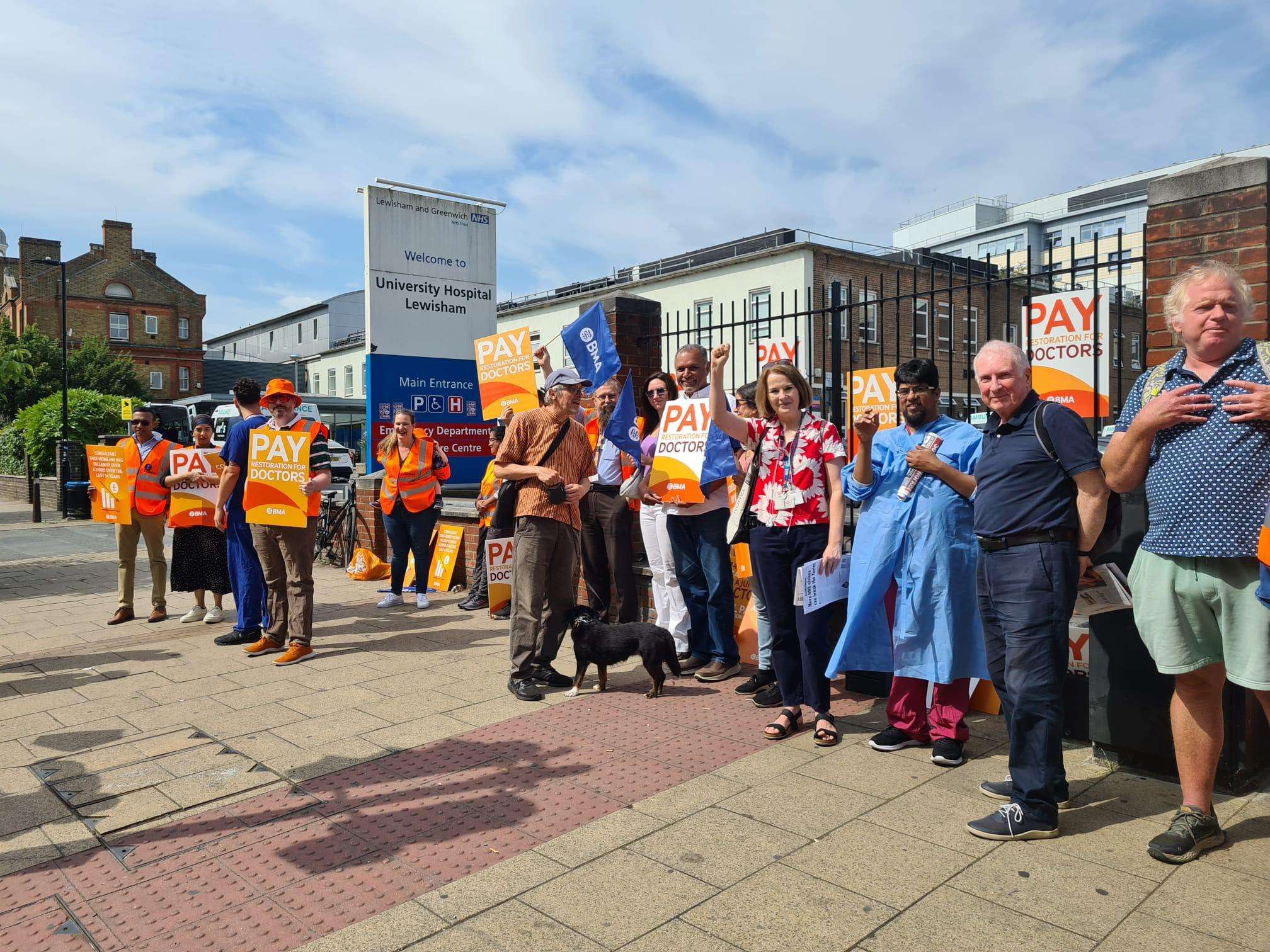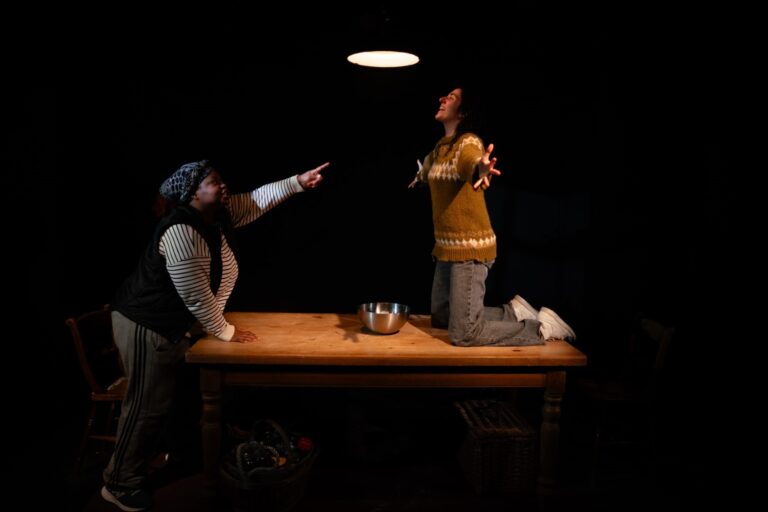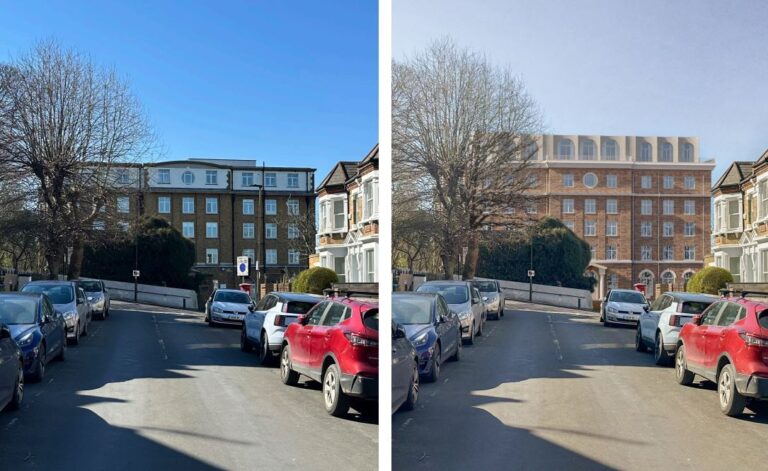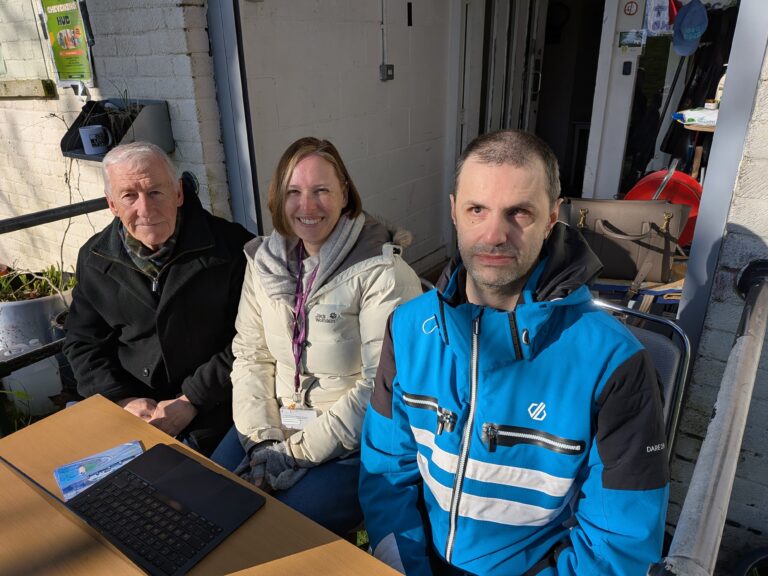South London hospital consultants striking over pay fear the NHS faces a ticking time bomb as demoralised junior doctors flee to Australia, Canada and New Zealand seeking higher pay and a better work-life balance.
NHS consultants on the picket line outside Lewisham Hospital on Friday, July 21, over the government’s six per cent pay offer said hospital doctors at all levels felt underpaid and overworked.
Consultants’ real earnings have plummeted by 15 per cent since 2010 based on the Consumer Prices Index (CPI), which is used to measure the cost of living. Consultants across England started their first walkout for a decade on Thursday, July 20.
The 48 hour strike organised by doctors’ union the British Medical Association (BMA) will end at 7am on Saturday. Patients have been warned to expect cancellations and delays as consultants are the most senior doctors and as such procedures needing their supervision can’t be covered for by others.
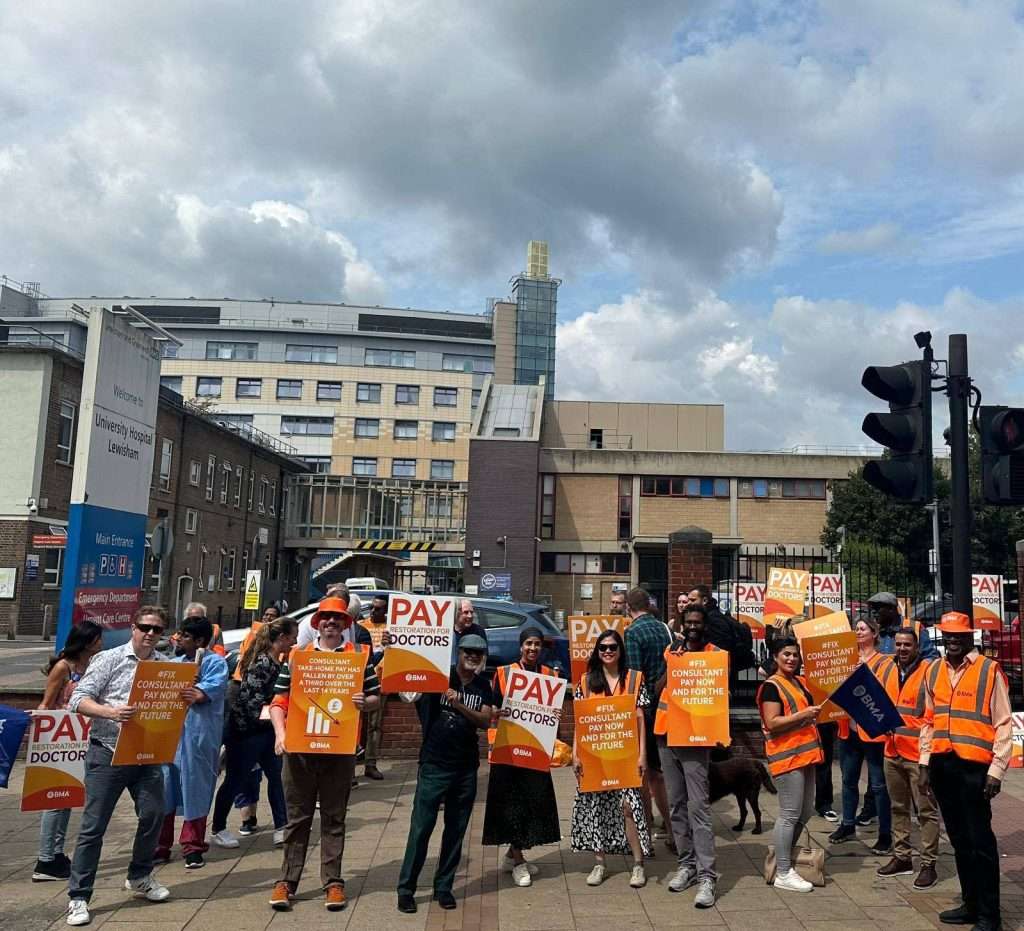
Sajeev Ranmuthu, 38, who has been a consultant at Lewisham Hospital for just over a year, said he had walked out for the future of the NHS.
He said: “I’ve come to fight for the NHS to make sure the health of the general population is looked after for the future and so there’s enough doctors for future generations. In general we are all overworked and understaffed.
“Doctors are 100 per cent choosing to move abroad. It’s more junior doctors. They come here, do their bit and realise it’s not a place where your work-life balance is looked after. They will go to Australia and New Zealand and Canada because that’s where they are valued and that depletes the workforce.”
Dr Ranmuthu added that he comes into work an hour before his shift is due to start everyday in order to complete all his tasks and was seeing a third more patients each day than when he worked at another hospital previously.
Rumina Mirza, 38, who has worked as a consultant for two years, said debt and stress meant many junior doctors she knew were opting to move abroad.
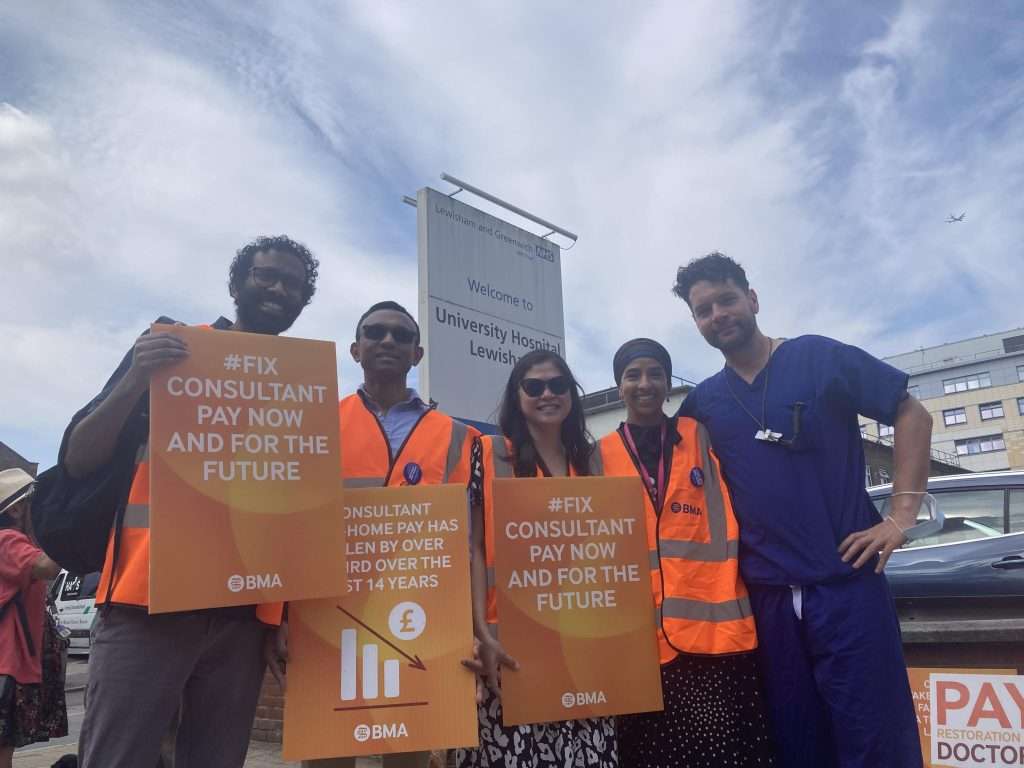
Consultants quoted, Sajeev Ranmuthu (far left) and Rumina Mirza (second right).
Photo by Robert Firth
She said: “Covid has left a lot of people feeling quite demoralised. With my junior doctors, there’s a huge amount who go to Australia and New Zealand.
“A lot of the junior doctors are in thousands of pounds of debt and it’s hard on their mental health.
“Family and friends have said to me ‘Why don’t you move abroad?’ I think I’m NHS at heart and I feel strongly about equal healthcare. It’s about having some level of recognition and some financial compensation.
“I love my job and I love the patients in Lewisham. I think it’s more trying to see if the government will listen.”
Imran Sharieff, 43, an anaesthetist and BMA rep at Lewisham and Greenwich NHS Trust, said the health service would struggle to recruit good consultants in the future unless the government upped its pay offer.
He said: “We don’t want to be striking. We know patients need their elective care [planned procedures like surgery]. Lewisham and Greenwich NHS Trust is not doing well with its backlog of electric care and the thing we want to do is go back in and provide care, but we don’t think we can do it with the offer that the government has given us.
“We aren’t going to get the quality of candidates [with the pay offer].
“It’s very easy for the best and brightest and most talented to go into jobs that value them better than this. I’ve seen lots of people being dissuaded from coming into medicine and I have seen younger doctors who have been training leave.
“They will do their registration years and then go to Australia and New Zealand.
“It’s because they pay their consultant doctors much more than here. The lifestyle is better than here and it’s the terms and conditions also.”
The UK health secretary Steve Barclay has refused to budge on the six per cent pay offer and said strikes won’t make any difference.
Mr Barclay said: “I hugely value the work of NHS consultants which is why we have accepted the independent pay review body recommendations in full, giving them a 6 per cent pay rise this year, on top of last year’s 4.5 per cent increase.
“This government has also reformed pension tax rules for consultants, something the BMA campaigned for over many years.
“I am disappointed the BMA is going ahead with this week’s strike, given the average consultant’s NHS earnings are expected to increase to £134,000 a year.
“My door is always open to discuss non-pay issues, but this pay award is final so I urge the BMA to end their strikes immediately.”


